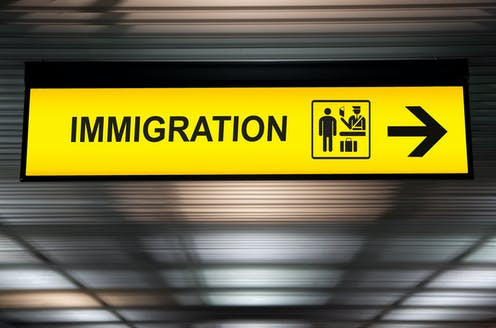Immigration Minister Weighs Revoking Visa Of Melbourne Gangster With 40 Convictions

Immigration minister Andrew Giles was reportedly contemplating the cancellation of Melbourne gangland figure Kevin Farrugia's visa, which was reinstated by the Administrative Appeals Tribunal (AAT) on Monday.
There has been discussion over "Direction 99," which emphasizes the strength of a foreign national's ties to Australia and allows Farrugia to stay despite his extensive criminal history.
Farrugia, 51, a Maltese national, had his visa reinstated on Monday despite having over 40 convictions for crimes involving assault, drug trafficking, and abduction, ABC reported. Furthermore, he is a member of the infamous Melbourne Mokbel family and has served more than 12 years in prison.
During Question Time, Shadow Immigration Minister Dan Tehan inquired as to whether Giles would be revoking Farrugia's visa once more.
"I am aware of the case that the shadow minister refers to, which was decided by the AAT yesterday, and it is under consideration by the national interest," replied Giles.
The immigration minister once again criticized Liberal leader Peter Dutton's performance in the Home Affairs ministry in response to Tehan's inquiry. The government contended that he let about 1,300 convicted felons remain in the nation.
"Among them is a person who has been convicted of sexual offenses against girls under the age of 14 and of regularly violating bail terms. He failed, not the opposition!" he said.
However, the pressure is growing on Giles as he races to release new guidelines. Meanwhile, opposition politicians like Shadow Immigration Minister Dan Tehan emphasize how urgent it is to address community safety concerns.
Several considerations went into the AAT's judgment to reverse Farrugia's visa rejection. First, Farrugia arrived in Australia at a very early age from Malta, and he has lived there for most of his life. In addition, every member of his close family -- including his spouse and 15-year-old daughter -- is an Australian citizen.
"A non-revocation decision would therefore result in difficult choices and significant adverse effects for his family irrespective of what decisions are made," said AAT senior member Professor Ann O'Connell.
"The applicant has lived virtually his whole life in Australia. His partner and daughter and all of his immediate family are in Australia and are all Australian citizens," she said. "It would be extremely hard on his partner and daughter to relocate and it is unlikely they would accompany him to Malta because of the established nature of their lives in Australia.
© Copyright 2025 IBTimes AU. All rights reserved.





















